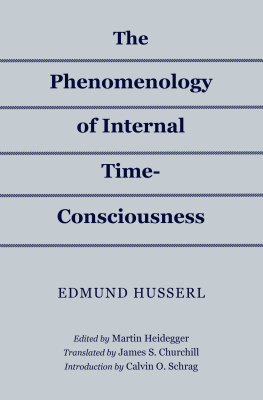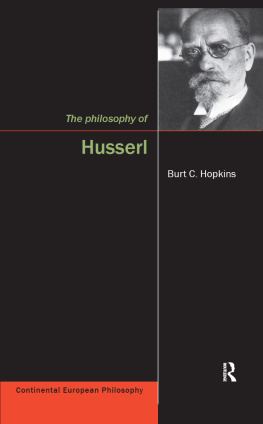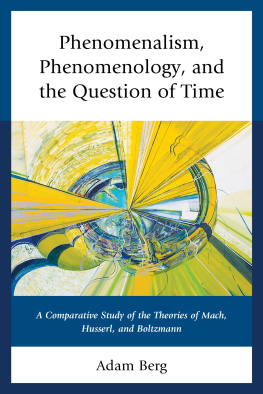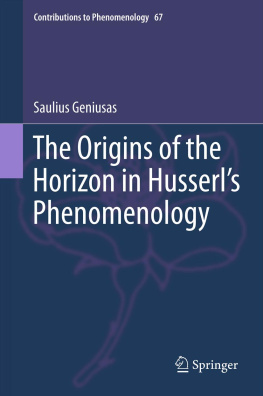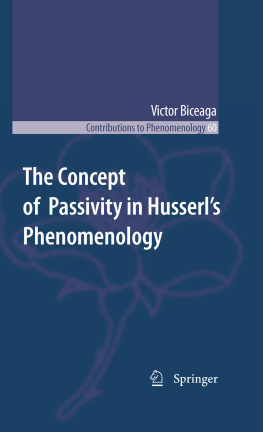1. Introduction: The Naturalistic Attitude Cannot Grasp Meaning for Consciousness
This chapter introduces the basics of what it is to be aware and notes that there are a number of traditions that interpret the consciousness-biology or consciousness and natural being relationship in ways that refuse to acknowledge the abundant evidence of how the world is represented in consciousness. This chapter focuses on the problems of their positions and their consequences in general as a false problem and in brief offers a genuine solution to the being of consciousness. The first section comments on the problems of the natural attitude and the limits of the naturalistic attitude of natural science that refuses the existence of the consciousness that gives it its methods and meaning. The dominant natural psychological scientific paradigm is sketched and absurd consequences of Scientism are noted. Second, the problem of naturalistic approaches that cannot grasp meaning for consciousness is because they mis-interpret the consciousness-being relationship and forever remain in an unclear position with respect to consciousness, so that they cannot or will not represent it, while asserting that natural being is the only being worthy of consideration: a version of a doubly negative dualism. Third, some brief comments are made about Husserls type of answer. The starting point for understanding consciousness is phenomenology, a methodical qualitative cognitivism that identifies the contours of its territory before any empirical approach to ensure that the empirical methods properly refer to conscious experiences. A taxonomy of the types of intentionality has consequences that helps understand the infinite set of instances of conscious experience involving processes that are implicit, tacit , preconscious or unconscious and highly variable. The fundamental territory to be understood are emotions, moods, thoughts, behaviours, mental habits and relationships between people and are evident in how persons treat themselves. The reflective phenomenological attitude provides helpful insights about consciousness and its processes of intentionality . There is consciousness of what it is like to be you or me, to be a child or adult, to be someone in history or merely a person in general who thinks and feels and struggles to understand. The project is to identify consciousness in general from its evidence. Being conscious is evidently discussible through speech and is certainly not the type of being of an inanimate thing. Indeed, some phenomena of being consciousness are undeniable and can be used to structure qualitative and quantitative reasoning in psychology and psychotherapy for instance .
Understandings at explicit and implicit levels form worlds with others where there are common objects of attention. People have unique personalities and inhabit social contexts and culture , in larger contexts of society and history, through being aware of meaningful cultural objects (although such conscious awareness is influenced by implicit and biological forces). Therefore, a special attention is provided for what it means to relate in a context, in a wide sense of the word relate. This includes the consideration of meaning within an attention to the therapeutic relationship in psychotherapy. For two centuries, the split between the qualitative Geisteswissenschaften , human studies, and the quantitative Naturwissenschaften , natural sciences , and psychological sciences, in this mould, has produced a battleground and a stalemate between incommensurable positions. Natural psychological science refers to the scientific types of psychology, biology, genetics, neuroscience, quantitative social science and physical anthropology. Studying sense-making itself shows how psychological empiricism is shaped by its theories in making its conclusions in meaningful terms. The consequences are multiple standards and manners of justification within these areas and that means that these disciplines proliferate rather than coalesce around a single set of shared justifications and methods. There are a large number of sub-disciplines within cognate, natural psychological science which include genetics and neuroscientific developments in the biological register. The tension is between claims about natural facts versus the aporia within meaningfulness and rationality concerning the openness of meaning to re-interpretation . Human studies refers to qualitatively-focused psychological, sociological and anthropological cultural sciences.
The Natural and Naturalistic Attitudes and Natural Psychological Science as the Dominant Paradigm
The naturalistic attitude is a single attention on natural being and natural causality (IX, 7, 1415, 17), something that is still in evidence today among those who deny the relevance of the products of consciousness as worthy of scientific interest. The naturalistic problem is that focusing on natural causation moves science away from meaningful justification and common sense experience. There are many important topics that together comprise consciousness in the world. In the consciousness- view, there is no doing without being, no thought without feeling, no action without reaction, no values without ethics and no self without others. Being conscious in a context is a multi-faceted whole that exists within yet more contexts of greater size. However, if common sense were sufficient then there would be no need for philosophy or science. The starting point of philosophy and the ground of psychology, and any other discipline for that matter, require understanding the experientially rich conscious life that people lead. For phenomenology, the natural attitude of the ordinary citizen of being in the world is a relevant starting point for the intentional analysis of meaningfulness, to clarify how consciousness works ideally in order to provide a co-ordinating set of universals about how consciousness is aware. But there are those scientists who take the naturalistic attitude , a focus on various levels of natural being such as the biological, biochemical, cellular and genetic. Obviously, the physical krper , the body as seen by natural science as a physical thing is an enabling condition of possibility for consciousness and intersubjectivity (IV, 25, 29, 34, 5675). But the consciousness-biology relationship varies in sleep, coma, anaesthesia, hypnosis, mood syndromes and other ways.
Despite the variation between a number of materially-oriented psychological sciences, their commonality is discernible as an excessive reliance on natural being with an absent or unclear relation to consciousness, the world of intentionality in which meaningfulness inhabits. Philosophically and theoretically, there are problems of unclear references between concepts and their referent-experiences among the naturalistic disciplines. The philosophical problem of confused references leads to problems of accuracy of understanding and the proliferation of schools of thought and practice. For instance, there are multiple assumptions about the being of consciousness that structure the methods used to generate evidence that is interpreted to conclude on consciousness. Because natural science can only investigate specific non-meaningful biological and physiological processes, then its results are disconnected from the need to make consciousness understood. The naturalistic attitude of natural science is the dominant paradigm (IV, 25, 174, 183, 191, 208, V, 21, 63). So, denying consciousness as qualitatively and scientifically relevant does not realise the consequence of rejecting rationality, personal responsibility in morality and the law, and shared meaning in culture and science. The whole of meaningfulness is lost along with the order that has occurred in the progress of civilization itself. The denial of consciousness is a profound alienation of rational discourses from meaning and qualia that are part of the lifeworld and the history and functioning of science, mathematics and philosophy. One product of civilization is natural science. But for Scientism to deny consciousness, free will and its forms of rationality is to deny meaningfulness, the history of science and its rationality too, because all are based on meaning for consciousness.











